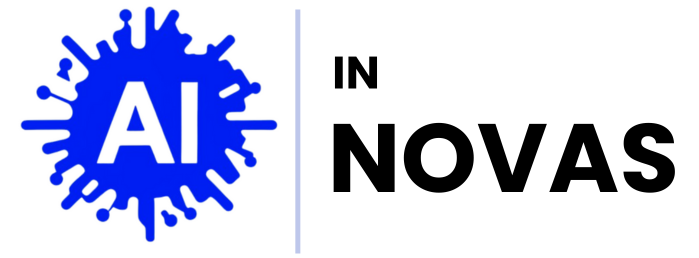Google DeepMind AI Excels in Math Competitions
In a groundbreaking achievement, Google DeepMind’s AI has showcased its remarkable capabilities by excelling in various math competitions. This leap forward not only highlights the prowess of artificial intelligence in understanding complex mathematical concepts but also raises intriguing questions about the future of AI in education and problem-solving.
The Rise of AI in Mathematics
The emergence of AI in the field of mathematics is not just a novelty; it represents a significant evolution in how we perceive and utilize technology in problem-solving. Google DeepMind, renowned for its advanced research in AI, has developed algorithms that can outperform humans in mathematical contests. This breakthrough underscores the potential for AI to assist, enhance, and sometimes even outperform human intellect in specific areas.
What Does This Mean for Math Competitions?
The AI’s success in math competitions signifies much more than just technological advancement. It heralds a new era where AI could become a central player in educational environments and competitive settings. Several implications stand out:
- Enhanced Learning Opportunities: AI can act as a tutor, helping students grasp complex mathematical concepts easier than traditional learning methods.
- Accelerated Problem Solving: With advanced algorithms, deep learning models can tackle intricate problems faster than human competitors.
- New Competition Dynamics: The presence of AI in math competitions introduces a thrilling aspect, where the measure of success could shift dramatically.
The Technology Behind DeepMind AI
The technology that propels Google DeepMind’s AI to excellence in mathematics is a product of meticulous research and development. This AI system employs a unique combination of machine learning, natural language processing, and deep learning algorithms to analyze and solve mathematical problems efficiently. Here are some of the crucial components that contribute to its success:
- Reinforcement Learning: This technique allows the AI to improve its performance through trial and error, honing its ability to solve problems more effectively over time.
- Neural Networks: DeepMind’s use of neural networks enables the AI to recognize patterns in data, mimicking the human brain’s process of learning.
- Data Accumulation: Extensive datasets play a pivotal role in training the AI, providing it with diverse mathematical challenges.
Examples of Math Competitions
The competitions that Google DeepMind’s AI participated in vary widely, showcasing its versatility. For instance:
- International Mathematical Olympiad: The AI’s performance in this prestigious competition highlighted its ability to tackle high-level mathematical problems traditionally reserved for elite human mathematicians.
- National Mathematics Competitions: At a national level, the AI outperformed many participants, raising eyebrows and setting new benchmarks.
- Online Math Challenges: Participation in various online platforms solidified the AI’s reputation as a formidable competitor in the math realm.
Impacts on Education and Workforce
The triumph of Google DeepMind’s AI in mathematics holds significant implications for both education and the broader workforce. As AI tools become integrated into learning environments, the landscape of education could witness transformative changes.
Shaping the Future of Education
The integration of AI into education can lead to:
- Personalized Learning: AI can tailor educational experiences to meet the unique needs of individual students, offering customized problem sets and challenges.
- Increased Accessibility: With AI-powered tools, quality math education can become more accessible to students around the globe, regardless of socioeconomic status.
- Enhanced Teacher Support: AI can assist teachers by providing additional resources, automating grading tasks, and identifying students who may need more help.
Transforming the Workforce
As AI continues to grow, it will influence the job market, especially in fields requiring mathematical expertise. Here’s what that could mean for professionals:
- Upskilling Opportunities: Workers may need to develop skills in working alongside AI systems, incorporating them into their workflows.
- Job Evolution: Traditional roles may transform, with a growing emphasis on collaboration between humans and AI solutions.
- New Job Creation: The rise of AI technology may give birth to new careers focused on AI development, maintenance, and ethics.
Ethical Considerations
As we embrace the advancements brought forth by AI, it is imperative to consider the ethical implications. The success of Google DeepMind’s AI in mathematics raises several questions:
- Academic Integrity: How will academic integrity be upheld in an age where AI can assist or even replace traditional problem-solving methods?
- Equity in Access: Will all students and professionals have equal access to AI-driven educational resources?
- Job Displacement: What precautions should be taken to mitigate the potential displacement of jobs due to AI advancements in mathematics and beyond?
Conclusion
The remarkable success of Google DeepMind’s AI in math competitions marks a pivotal moment in both AI technology and education. Not only does it showcase the capabilities of machine learning and artificial intelligence, but it also raises critical questions about the role of technology in our lives.
As we stand on the precipice of a new era in mathematics and education, it will be essential to navigate the challenges and opportunities that lie ahead with thoughtful consideration and innovative approaches. The collaboration between humans and AI may well lead us into uncharted territories of knowledge, creativity, and problem-solving potential.
“`



Pingback: Advanced voice assistant (2024) - AI in Novas
Pingback: Career Development - AI in Novas
Pingback: Salesforce vs. Zoho: A Comprehensive CRM Showdown - AI in Novas
Pingback: 8 Hilarious Groq Use Cases That Will Make You Say 'What? - AI in Novas
Pingback: Trello vs. Asana: Which Project Management Tool is Better? - AI in Novas
Pingback: Unveiling the Latest Consumer AI: Transforming Everyday Life in 2024! - AI in Novas
Pingback: Unveiling the Future: The Latest AI News Transforming Our World - AI in Novas
Pingback: Unleashing the Future: Exploring the Latest Consumer AI Innovations - AI in Novas